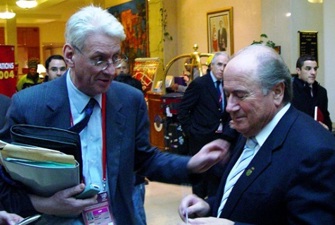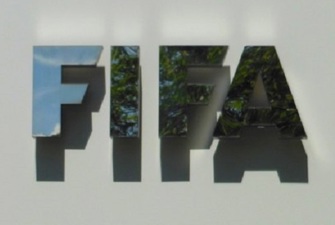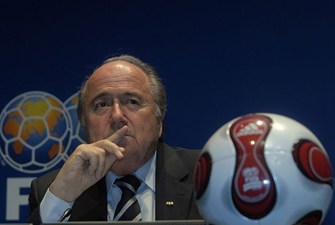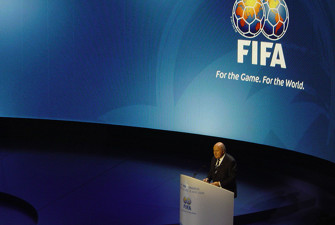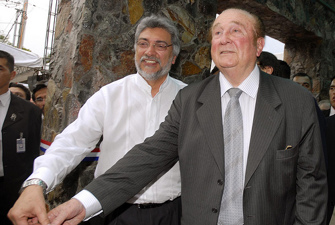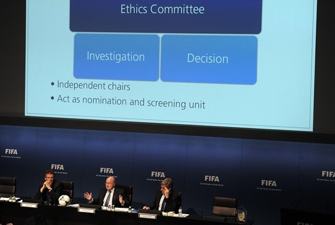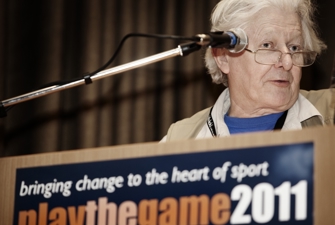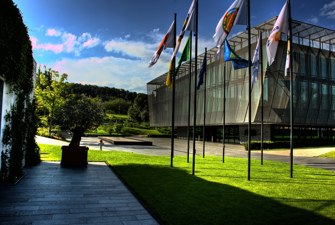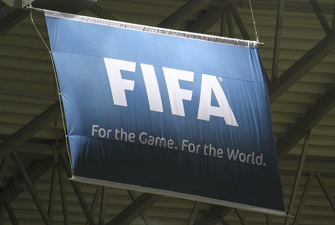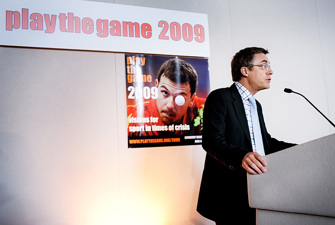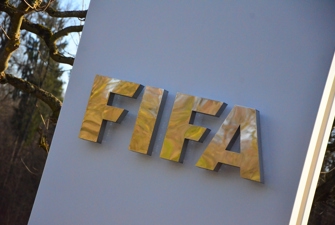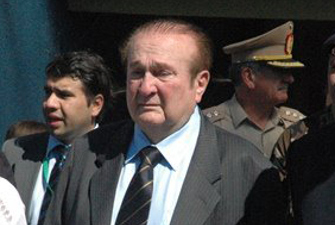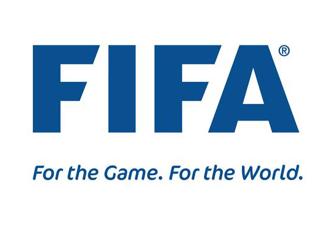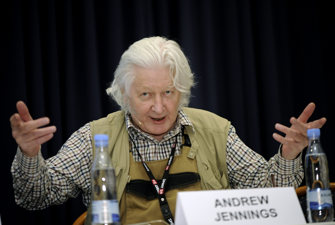FIFA dismisses BBC corruption claims, IOC prepares investigation
The controversial and much talked about BBC Panorama documentary “FIFA’s Dirty Secrets” aired yesterday evening, naming names of three FIFA officials who were exposed as bribe-takers in the world’s biggest sport corruption case – the ISL case.
The BBC has been the victim of much criticism after the British broadcaster publicized its decision to air the FIFA critical Panorama documentary only three days before FIFA’s election of the 2018 and 2022 World Cup hosts.
The English bid committee has accused the BBC of being unpatriotic, sensationalist and of seriously hurting the English bid by airing the documentary, and the British Government has expressed concern that the documentary will not bring any new evidence to the table but only antagonize potential England supporters in the Executive Committee.
BBC names names
Yesterday evening, the BBC Panorama could expose that FIFA Executives Nicolas Léoz, Issa Hayatou and Ricardo Teixeira in the 1990ies took bribes from the sport marketing firm ISL in exchange for lucrative World Cup rights. These alleged bribes are included in a confidential document listing 175 payments of a total of about $100 million. This case was closed in the court of Zug in Switzerland this summer, but the names of the bribe-takers have been kept secret – until now.
Reactions to the programme
In a statement following the Panorama broadcast, England 2018 bid committee said that the programme was "an embarrassment" to the BBC, writes BBC News.
"We stand by our previous position that the BBC's Panorama did nothing more than rake over a series of historical allegations none of which are relevant to the current bidding process.”
FIFA posted the following statement on their website as a reaction to the programme’s allegations:
“The matters concerning the case “ISL/ISMM” which are referred to date back many years ago and were investigated by the relevant authorities in Switzerland.” “In its verdict of 26 June 2008, the Criminal Court of Zug had not convicted any FIFA Officials. It is therefore important to stress again the fact that no FIFA officials were accused of any criminal offence in these proceedings”, writes FIFA.com.
At the time when the ISL paid the bribes, it was not a criminal offence in Switzerland.
Play the Game's International Director Jens Sejer Andersen rejects the reasons the football establishment gives for neglecting the charges:“When three top football official have a history of stealing between 25,000 and 10 million dollars from football, this is by any standard disqualifying, no matter what Swiss legislation said at the time, and no matter how old the misdeed is. Moreover the secretive behavior of FIFA in all known corruption affairs leads us to suspect that there is more under the carpet, and that the system of massive kickbacks may not have died with the bankruptcy of the ISL.”
Play the Game agrees with those who call for an independent, international investigation into FIFA’s financial past.
IOC intends to investigate claims
Following the Panorama programme, the IOC stated that it intends to investigate BBC’s claims against FIFA Vice-President Issa Hayatou, who is also an IOC member.
The IOC said in a statement that it has “taken note of the allegations made by BBC Panorama and will ask the programme makers to pass on any evidence they may have to the appropriate authorities. The IOC has a zero tolerance against corruption and will refer the matter to the IOC Ethics Commission," writes the Irish Times.
BBC defends Panorama investigation
BBC Executive Editor Clive Edwards defended the investigation and stated that it was Panorama's job "to investigate corruption and wrongdoing", writes BBC News.
"Some people have said that it would have been better to do it after the vote but it is surely nonsense to suggest that you know a process could be flawed and you don't say anything until after it has happened," Mr Edwards said."I am not prepared to sit on information we have. I believe that it is in everyone's interest that there should be a fair process and that corruption should be exposed."
Blatter caught between a rock and a hard place
After the screening of the documentary, Jens Sejer Andersen made following comments:
“If FIFA really wants to secure its credibility and the global prestige of football after BBC’s revelations, there is no other option than to suspend the World Cup host selection process and make sweeping changes of its governing board. However, credibility may be a secondary issue in the coming days for the FIFA leaders that are fighting to survive politically.”
“President Blatter’s own position depends heavily on three of the four persons whose corrupt behaviour has now been exposed. Among them, Ricardo Teixeira has most to lose as he is President of Brazilian football as well as Head of the organizing committee of the World Cup 2014, a double position that he is already exploiting ruthlessly to add to his wealth. Jack Warner has been caught involved in selling thousands tickets illegally before, but in spite of the flagrant violation of FIFA’s own rules, Blatter has not dared to throw him out. Léoz is not a key player, but regarded as part of Blatter’s power base.”
So Blatter is really caught between a rock and a hard place, argues Andersen.
“If he chooses to confront his allies, his political platform may collapse under him. If not, he risks an enormous loss of public prestige and long term credibility for himself and for FIFA. I think he and his aides will try to buy some time and try to keep the World Cup selection process running on schedule, while they study reactions worldwide”.
“Much will depend on how the international media and politicians react over the coming weeks, especially in those countries that will lose the battle for the World Cup. Some losers will keep a low profile for some time in order not to appear as sore losers. But sooner or later there will be payback time from countries that discover that they have wasted hundreds of millions of tax payers’ money in a corrupt setting.”
“The pressure comes from many sides. For instance, it is notable that FIFA’s corrupt standards have made the Swiss authorities increasingly worried about the lack of transparency and accountability in the sports organisations, and new legislation might give FIFA a helping hand if they cannot clean their act by their own force” Andersen concludes.
